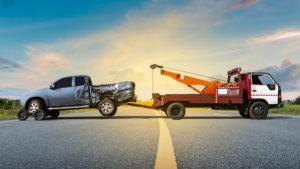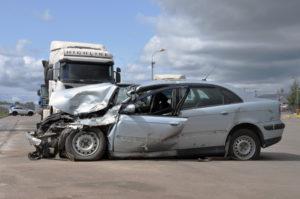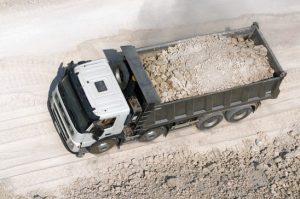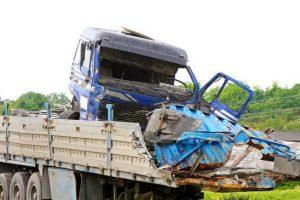
Situated on the Gulf Coast between Texas and Mississippi, there are a number of geographical advantages for companies here, and the state’s economy depends on the ability of commercial trucks to transport goods throughout the region, as well as from the ports to other parts of the country. Unfortunately, where there is truck traffic, there is the inevitability of truck accidents.
If you have been injured in a truck accident in Louisiana, be aware that many of the laws that pertain to the truck and its driver are federal regulations put forth by the Federal Motor Carrier Safety Administration (FMCSA). Here is a brief look at some of these laws. For a more in-depth discussion of how these laws pertain to your case and the process of seeking compensation for your injuries, contact an experienced truck accident attorney from Morris Bart.
The Requirement of a Commercial Driver’s License
Commercial trucks — commonly referred to as semi-trucks or tractor-trailers — are massive vehicles and are hard to maneuver. Because of the risks to other roadway users by the trucks, truck drivers are required to obtain a special license known as a commercial driver’s license (CDL). Recently, the FMCSA upped its requirements for entry-level drivers, setting minimum requirements for the amount of training the driver must have before testing for their CDL.
In addition to entry-level training, in order to obtain a CDL, a driver must:
- Be able to pass a screening for drugs and alcohol.
- Posses a clean driver record.
- Obtain a physical exam to ensure they are physically able to handle the rigors of the job.
In order to maintain the CDL, the driver will undergo annual drug and alcohol screenings and physical exams. CDL-holders are also subject to other requirements, including a ban on texting while driving and a legal alcohol impairment limit that is half the .08 grams of alcohol per deciliter of blood that is the impairment limit for most other drivers over the age of 21.
For a free legal consultation, call 800-537-8185
Additional Training Needed to Haul Hazardous Materials
As explained by the Transportation Security Administration (TSA), drivers who have obtained their CDL can also apply for a hazardous materials endorsement. This endorsement requires the applicant to be fingerprinted in order to undergo a more rigorous background check.
On-the-Job Training Provided by the Trucking Company
While there is no strict rule pertaining to on-the-job training provided by the trucking company and many companies don’t offer such training, ensuring that the driver has the skills and ability to perform the job is one of the responsibilities of the trucking company that hires them. If an improperly-trained driver causes an accident that results in injuries to others, the company can be liable.
Click to contact our personal injury lawyers today
The Trucking Company’s Responsibilities
The trucking company has additional responsibilities for its drivers, including:
- Obtaining the proper amount of insurance for the truck
- Committing to a regular maintenance schedule to ensure that the truck is in good, operating order
- Ensuring that the driver is properly licensed and has performed all the requirements to maintain their CDL
Hours of Service Requirements
Truck drivers are required to log their hours electronically and abide by Hours of Service regulations that include:
- The ability to drive up to 11 hours after 10 consecutive hours off-duty
- May not drive beyond the 14th hour after coming on-duty after 10 consecutive hours off duty
- The requirement of a 30-minute break after 8 hours of driving
- The driver may not drive after either 60 or 70 hours during a 7 or 8 day period
The purpose of these requirements is to prevent accidents caused by truck driver fatigue. According to the FMCSA, about 13% of truck drivers involved in accidents reported being tired at the time of the crash.
Pre-Trip Inspections
Louisiana truck drivers are required to perform a visual inspection of the vehicle before every trip in order to look for visible signs of wear that could render the truck unsafe to operate.
The Vehicle’s Weight
Commercial truck drivers are generally limited to up to 80,000 pounds of cargo in a single trailer when fully loaded. On certain roadways and bridges, even this amount is too much. Weigh stations are posted throughout the country in order to ensure that the vehicle is not overweight.
Overly heavy loads not only carry a risk of damaging the roadway, but they can also create damage to the truck itself or cause a weight imbalance that can make it prone to tipping over.
Others Who Can Be Liable for Louisiana Truck Accidents
It is important to remember that truck drivers and trucking companies aren’t the only potential sources of liability in a truck accident. Depending on the circumstances of your case, other sources of liability can include the drivers of other vehicles, the entity or individual that was providing service on the truck, the shipper who is responsible for loading the trailer, or even the manufacturer of parts used on the truck.
A Truck Accident Lawyer Can Help You with Your Claim
The federal regulations pertaining to the trucking industry were largely put in place to protect other roadway users from accidents involving these large vehicles. Unfortunately, in spite of their intended benefits, these same regulations can make the process of gathering the evidence needed to prove a truck accident claim overwhelming for most people. Morris Bart has the benefit of the experience of more than 100 attorneys and 150 legal professionals across four states.
We understand the type of evidence needed to prove a truck accident claim in Louisiana and the type of compensation that is often necessary to compensate for the serious injuries that are often involved. Let us help you explore your legal options for seeking compensation for your injuries. For your free case evaluation, contact us online.
Questions?Call 800-537-8185
to find a Morris Bart office near you.





